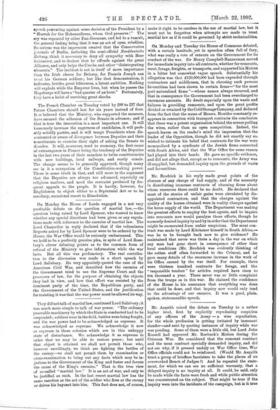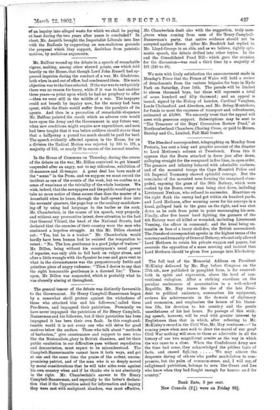Mr. Asquith raised the debate on Tuesday to a rather
higher level, first by explicitly repudiating suspicion of any officers of the Army — a wise repudiation, for the whole profession is getting irritated by incessant slander—and next by quoting instances of inquiry while war was pending. Some of them were a little old, but Lord John Russell had approved Mr. Roebuck's Motion during the Crimean War. He considered that the remount contract and the meat contract specially demanded inquiry, and did not see why, if it pressed unduly on War Office time, War Office officials could not be reinforced. (Would Mr. Asquith trust a group of briefless barristers to take the places of an overworked Bench of Judges ?) And he repeated the state- ment, for which we can see no sufficient warranty, that a delayed inquiry is no inquiry at all. It could, he said, only be made while the facts were fresh and while public attention was concentrated on the subject. That might be true if the inquiry were into the incidents of the campaign, but is it true
of an inquiry into alleged waste for which we shall be paying at least during the two years after peace is concluded? In short, Mr. Asquith brought the Imperialist Liberals into line with the Radicals by supporting on non-malicious grounds the proposal which they support, doubtless from patriotic motives, by malicious arguments.











































 Previous page
Previous page